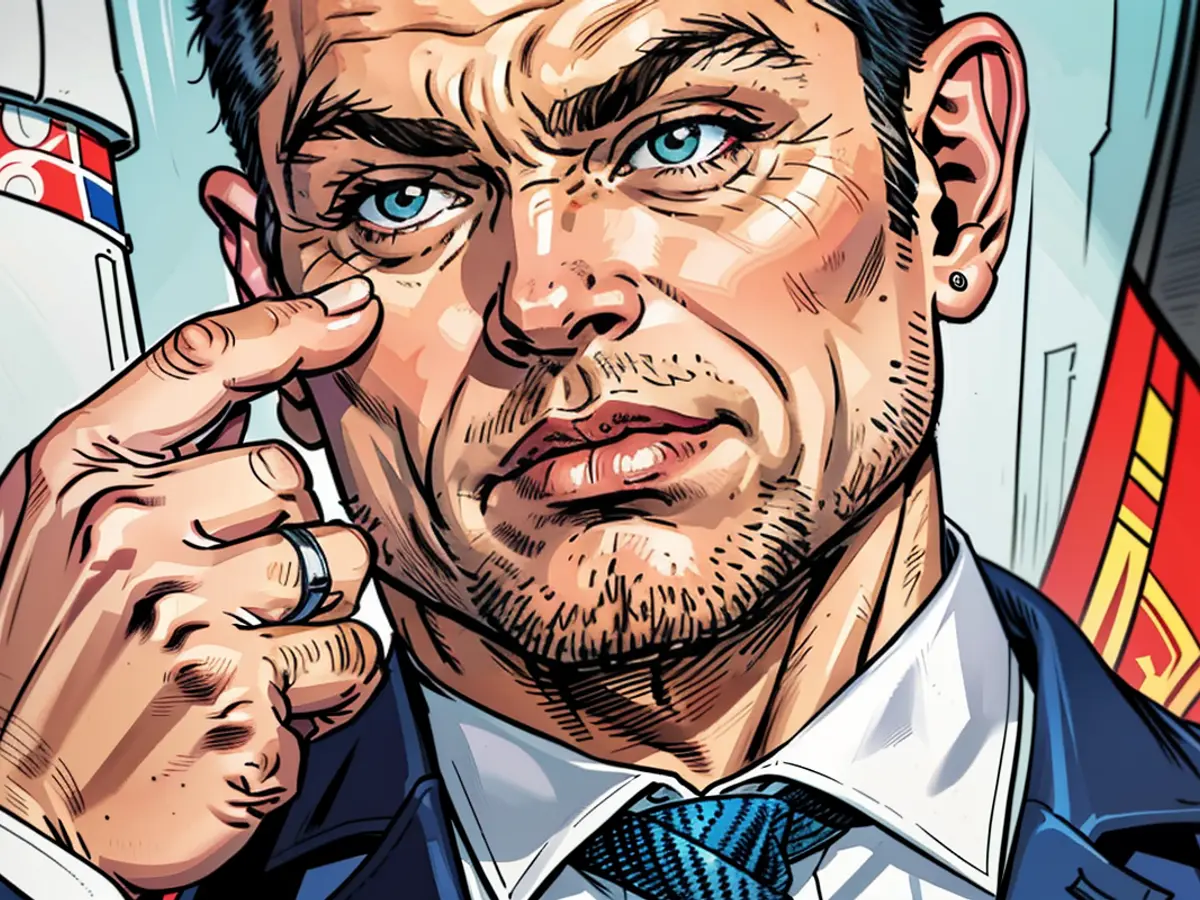Following the European polls. - Election chaos at traffic lights: enduring phrases before the deciding moment
In spite of some significant losses in the European election, the coalition known as the "traffic light" parties have declined requests for a new election for the Bundestag. The leaders of the SPD, FDP, and Greens have expressed their confidence in Chancellor Olaf Scholz, who is accountable for the worst performance of the Social Democrats in a national election since over a century ago.
The long-term durability of this alliance is currently in question. The budget negotiations provide a litmus test for the government coalition. It is scheduled on July 3, when the cabinet will unveil its plans.
Scholz Maintains Optimism
Scholz himself emphasized the need to continue their work. "It wasn't a great result for any of the three coalition parties," he mentioned following a meeting with Chilean President Gabriel Boric in Berlin. "Now isn't the time to just give up. We need to ensure that our nation evolves and becomes contemporary. We have to prepare ourselves for the possibility that more people will support our endeavors in the coming federal election."
Although Scholz was closely involved in the election campaign and appeared on posters with Spitzenkandidatin Katarina Barley, the exact level of personal responsibility he bears for the poor performance was not mentioned. Scholz's party, the SPD, experienced its worst outcome, achieving 13.9%, since it was first called by that name in a national election in 1891. His active participation might have contributed to the poor outcome.
Kevin Kühnert, General Secretary of the SPD, defended Scholz. "Just because the campaign went poorly doesn't mean he would have performed any better without him on the posters," he argued. "We win together and lose together. That's our shared electoral defeat."
Lindner Stays Confident in Scholz
Christian Lindner, the leader of the FDP, expressed no doubts about Scholz's leadership or the traffic light model as a government model. "We have a joint government program, a coalition treaty, that we're working on together. And as long as everyone sticks to this work basis, there's no reason to question confidence," he said.
Omid Nouripour, the leader of the Greens, also urged against conducting a confidence vote. "We've signed an agreement with the SPD and FDP for four years, and we'll honor our part of the agreement."
Budget Negotiations: A Challenge Ahead
The traffic light parties' declarations at their press conferences are mostly idle talk. Solidifying the alliance's functionality will only be confirmed through the budget negotiations, which are already problematic. Lars Klingbeil, the leader of the SPD, has stated that as a consequence of the electoral results, he will advocate for his groups' interests with vigorous constraints. "Our people expect to see us fight." Kühnert also declared, "A budget reduction that undermines social cohesion—the Social Democrats won't approve that."
Lindner's insistence on adhering to the debt brake and the FDP's rejection of tax increases are in stark contrast. Lindner reiterated his demands for an update to the citizen's income following the election. Solutions to the open budget challenges are still unidentified. The much-anticipated date of clarity is expected to be July 3, when the cabinet will decide on the budget.
Merz and Soeder: No Decision on Chancellor Candidates
The calls for a new election primarily originate from the Union. CDU leader Friedrich Merz referred to the results as a "complete disaster" for the federal government. "A poor outcome for us was 30%, and that's where we ended up," he admitted. "It's a challenge we need to confront."
CSU leader Markus Soeder highlighted that the Union had not reached a conclusion on their chancellor candidates. "Not yet. It shouldn't be a hasty decision. There must be a fitting time when a federal election is held," he disclosed when asked about the topic on n-tv. "CDU leader Merz and I coordinate closely together."
Read also:
- Despite the poor showing in the European elections, Gabriel Boric, the Chilean President, met with Chancellor Olaf Scholz in Berlin, expressing support for the German leader's perseverance slogan during his election campaign.
- Following the European elections, the SPD, FDP, and Greens have rejected calls for new elections for the Bundestag, opting instead to focus on the budget negotiations scheduled for July 3.
- Markus Söder, the leader of Bavaria's CSU, while not yet deciding on chancellor candidates, acknowledged the need for a careful and timely decision in the aftermath of the European elections.
- Olaf Scholz, in his meeting with Gabriel Boric, emphasized the importance of learning from the election results and preparing for the upcoming federal election, as they sought to ensure their nation's evolution and modernization.
- Omid Nouripour, the leader of the German Greens, adhered to the traffic light coalition agreement signed with the SPD and FDP, pledging to honor the four-year commitment despite the European elections' outcome.
- The budget negotiations, slated for July 3, will serve as a crucial test of endurance for the traffic light coalition, with Lars Klingbeil advocating for his party's interests and Christian Lindner pushing for an update to the citizen's income.
- Following the European elections, the FDP leader, Kevin Kühnert, defended Chancellor Scholz, arguing that his involvement in the election campaign had not been detrimental to the SPD's performance, and that they would face new elections together or lose together.
- The SPD General Secretary, Kevin Kühnert, assured that a budget reductions undermining social cohesion would not be supported by the Social Democrats in the upcoming negotiations, emphasizing the need to protect the people's expectations.
- Amidst internal political pressures, Olaf Scholz and the traffic light coalition will have to navigate the complex budget negotiations, presenting a test of their ability to persevere and maintain unity in the face of challenges.
- The SPD's poor performance in the European elections has served as both a challenge and an opportunity for the coalition, pushing them to rally and demonstrate their resilience ahead of the expected federal election set for the future.








